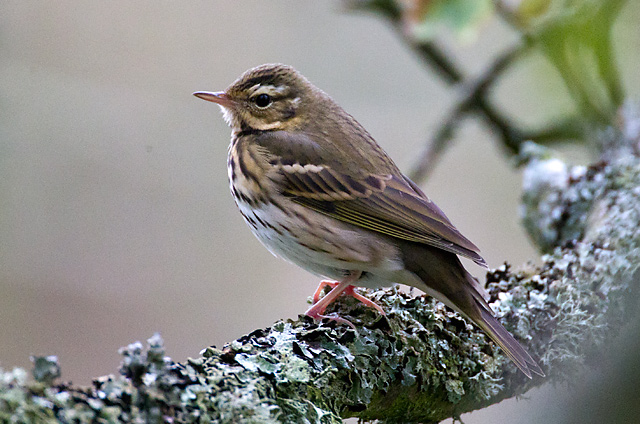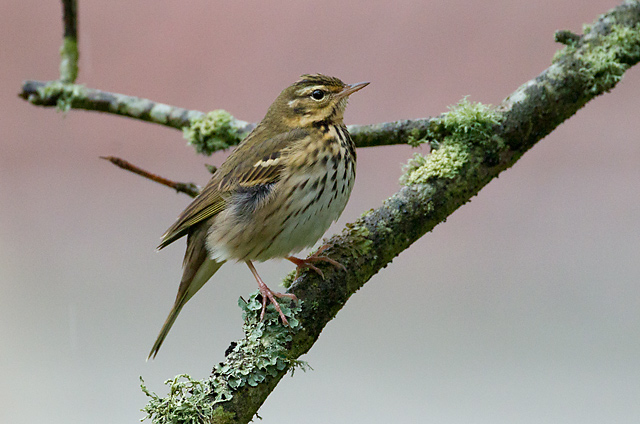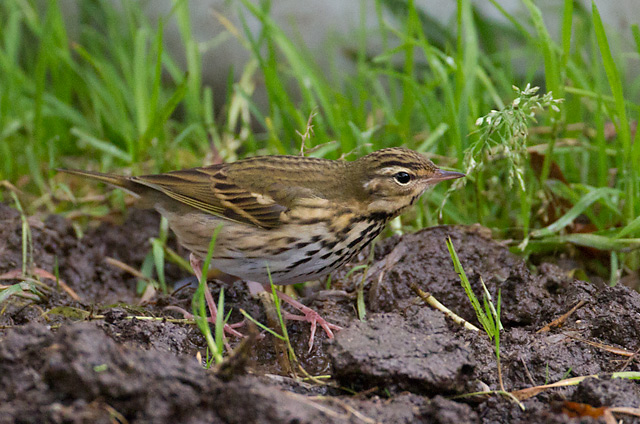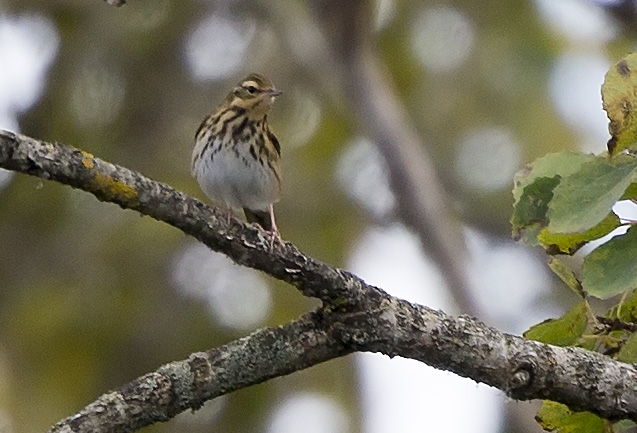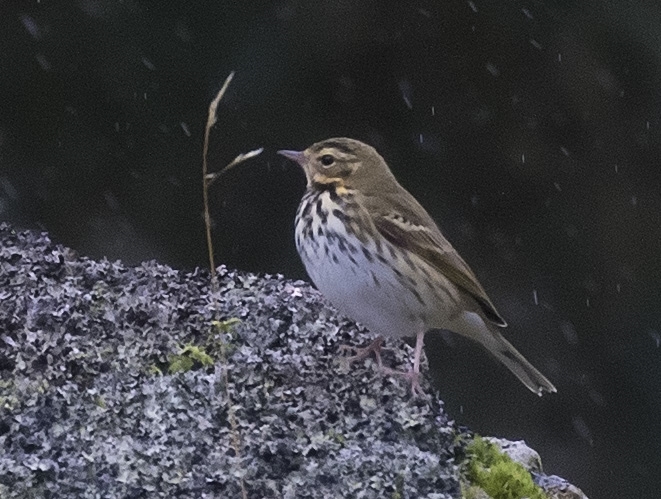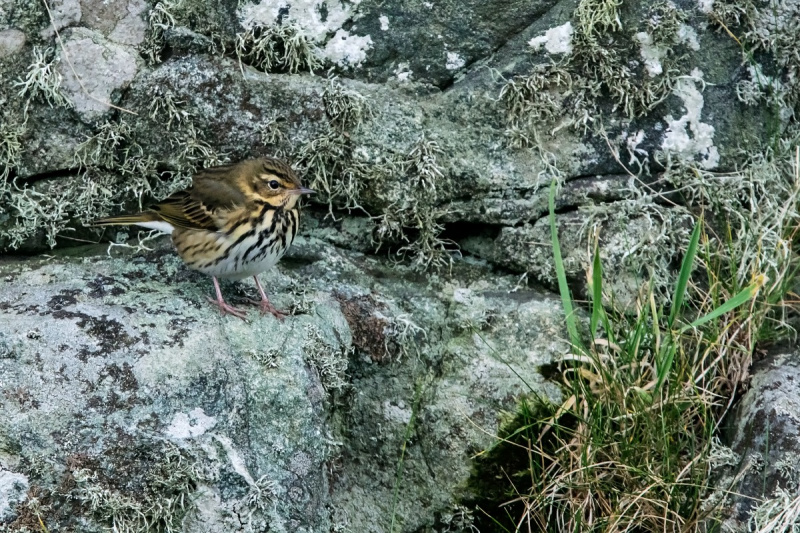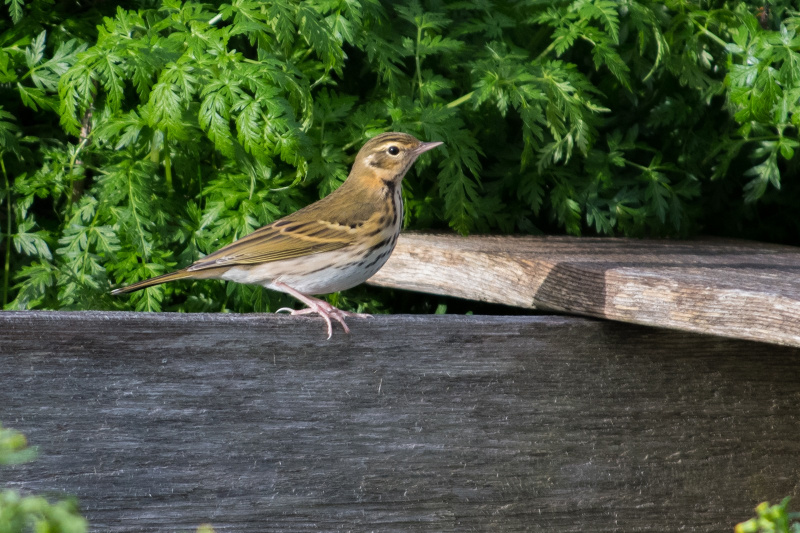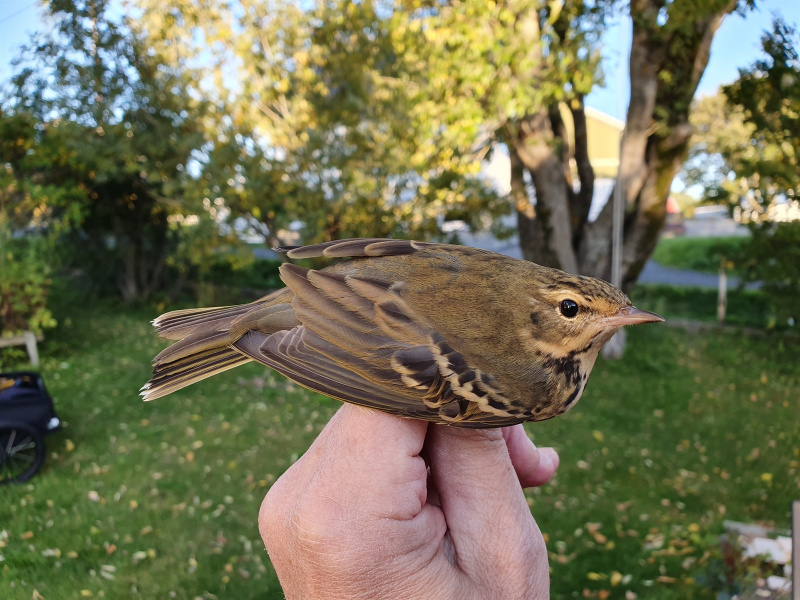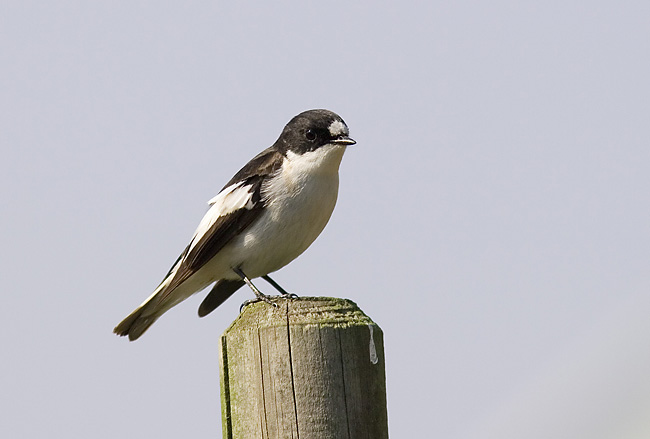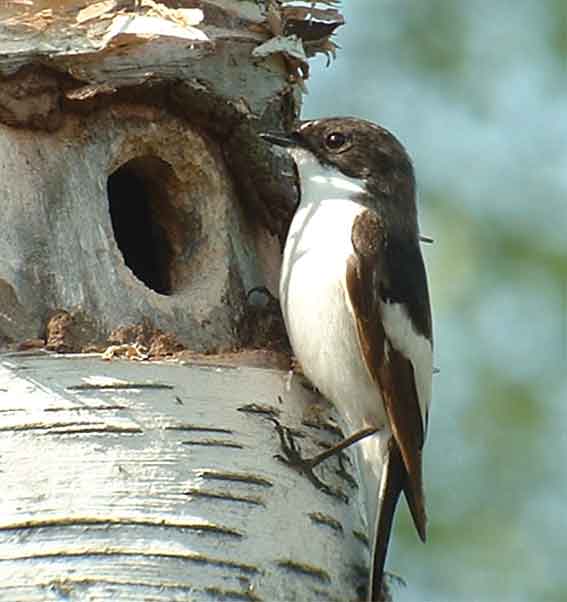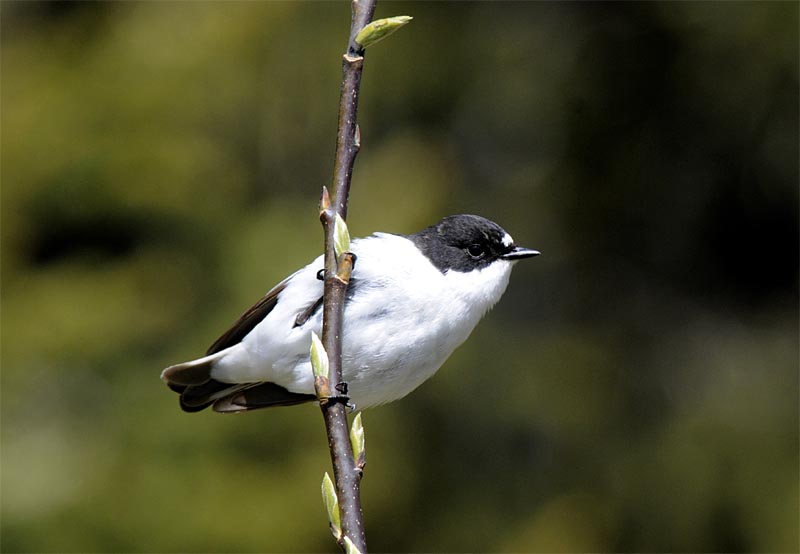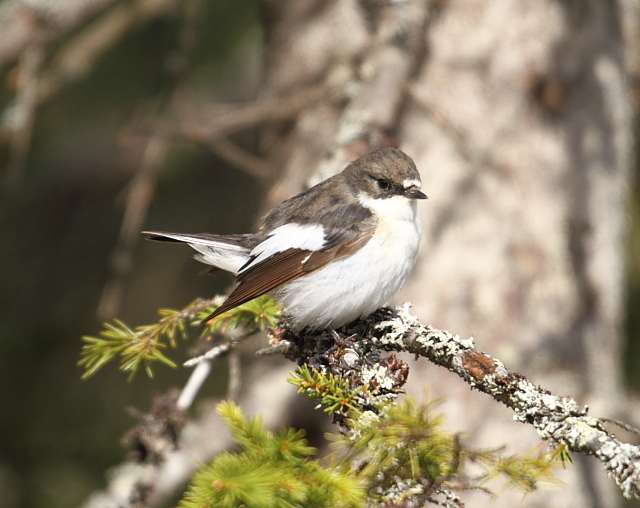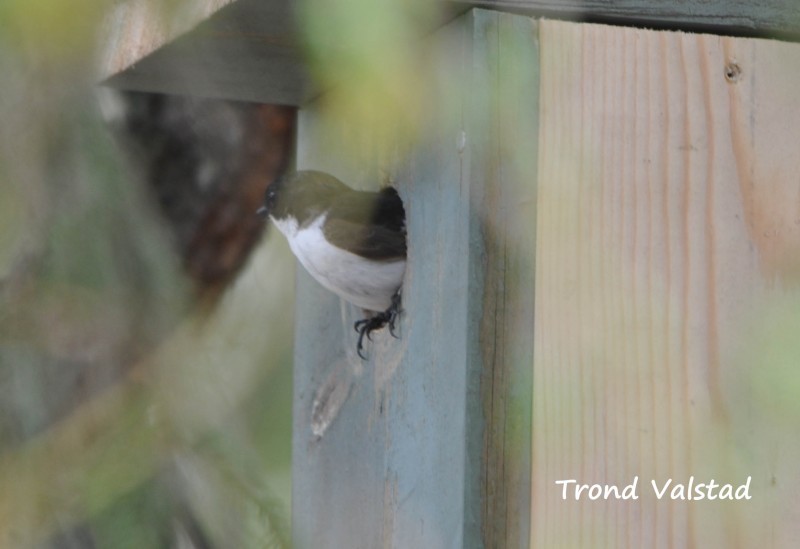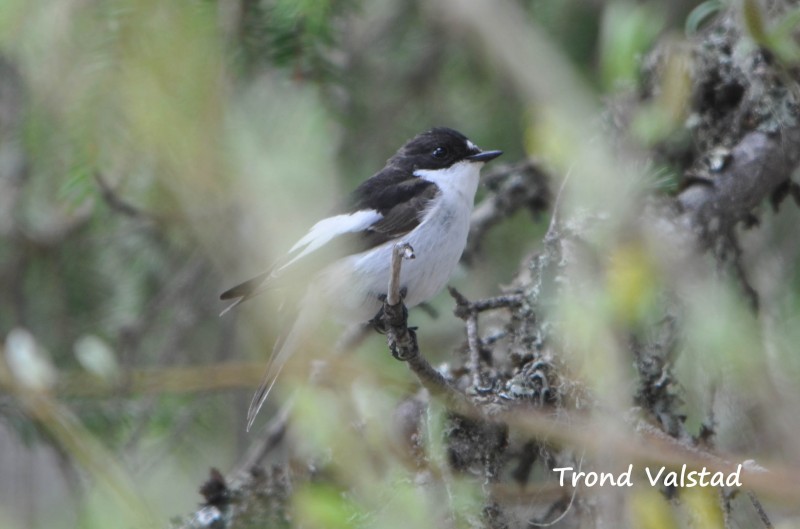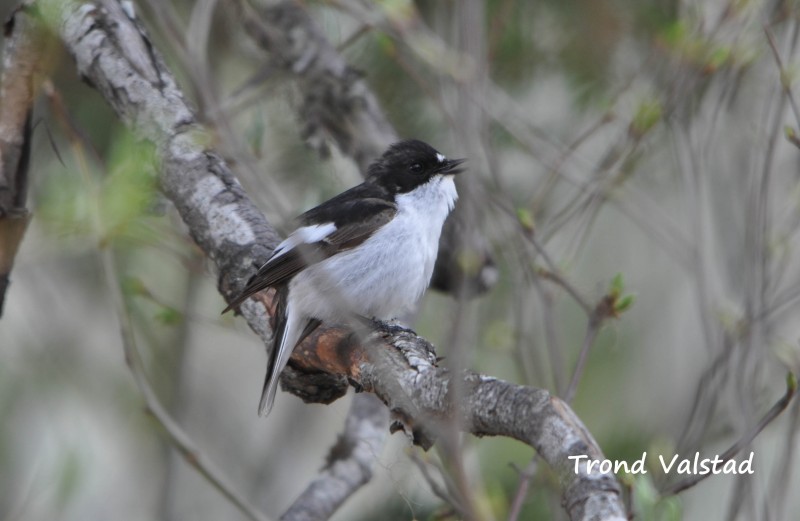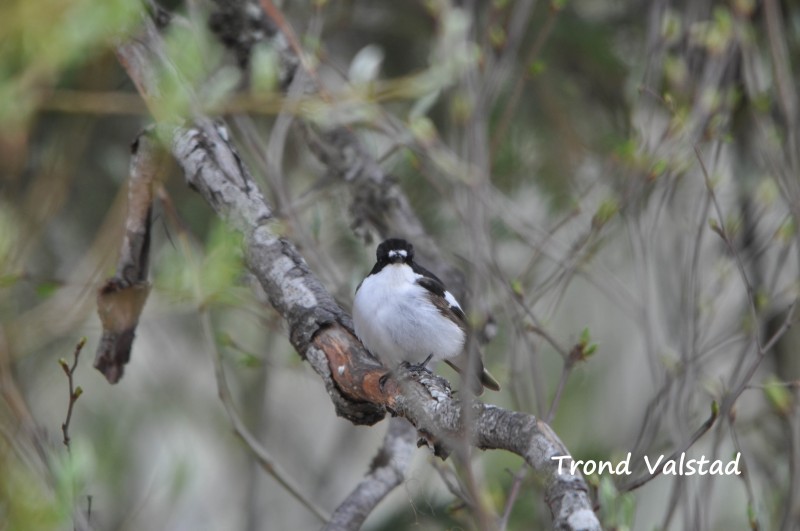Olive-backed Pipit (Anthus hodgsoni)
Pied Flycatcher (Ficedula hypoleuca)
A fairly characteristic pipit due to the fresh plumage tones, defined facial pattern and marked breast streaking. Back olive-coloured with only faint streaking. Rump lacks streaking. Usually shows a pale and a black spot on rear cheeks. Legs pinkish, with short hind-claw, similar to Tree Pipit. Similar behaviour as Tree Pipit. Readily enters trees, and will also walk along branches. Flight also similar to Tree Pipit, lacking the stuttering motion of Meadow Pipit.
Sound:Song similar to Tree Pipit, but tempo more even and with a timbre resembling Dunnock. Most often heard on migration is the contact call which (again) is very similar to Tree Pipit, a short buzzing "tzzzeet".
Contact call:
Distribution:
Xeno-canto Map
Ecology:Birdlife ecology
Links:
Observation.org Latest observations
Image search Flickr NB! May give other species
CCMale with shiny black upperparts and pure white underparts. Female grey-brown with pale underparts. Both sexes with broad white edges to tertials and greater coverts, forming a broad white patch (largest in males). Fairly compact body compared to Spotted Flycatcher, with shorter tail and bill. Easily confused with Collared- and Semicollared Flycatcher where these occur. Both sexes differs from Semicollared in no white edges to end of tail and less white at base. Distinguished from Collared in white patch beneath alula being narrow and not reaching edge of wing (both sexes), white base of tail (black in Collared males) and no collar (males).
Sound:Alarm call a sharp, energetic "wit", often in combination with a short "tic"; "whit-tic". Song a pleasant, tuneful, simple but varied phrase. Typically starts with disyllabic notes being repeated 3-5 times, diminishing in pitch and intensity like an echo of the first two syllables. Occasionally throws in a quick diagnostic ascending scale excercise. Clear notes and well defined pauses between phrases.
Song:
Distribution:
Xeno-canto: map
Ecology:Birdlife ecology
Links:
Observation.org Latest observations
Image search Flickr NB! May give other species
CC
 English
English Albanian
Albanian
 Armenian
Armenian
 Bulgarian
Bulgarian
 Catalan
Catalan
 Croatian
Croatian
 Czech
Czech
 Danish
Danish
 Dutch
Dutch
 Finnish
Finnish
 French
French
 Georgian
Georgian
 German
German
 Greek
Greek
 Hungarian
Hungarian
 Italian
Italian
 Latvian
Latvian
 Lithuanian
Lithuanian
 Macedonian
Macedonian
 Norwegian
Norwegian
 Polish
Polish
 Portuguese
Portuguese
 Romanian
Romanian
 Russian
Russian
 Sami : Lule sami
Sami : Lule sami
 Sami : North sami
Sami : North sami
 Sami : South sami
Sami : South sami
 Scientific names
Scientific names
 Serbian
Serbian
 Spanish
Spanish
 Swedish
Swedish
 Ukrainian
Ukrainian


